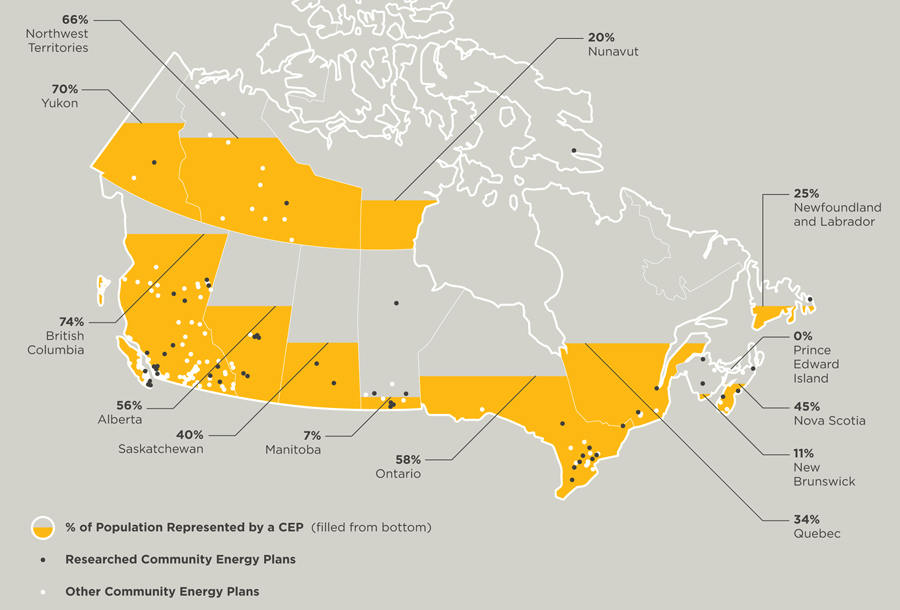Halifax: Communities are central to enabling provincial and territorial governments to achieve their energy objectives through the implementation of Community Energy Plans (CEPs), finds a new report released July 20 by the Community Energy Association, QUEST - Quality Urban Energy Systems of Tomorrow, and Sustainable Prosperity.
 The new report, entitled “National Report on Policies Supporting Community Energy Plan Implementation,” was released at the Energy and Mines Minister’s Conference in Halifax, Nova Scotia. The report identifies more than 640 provincial and territorial policies and programs that support the development and implementation of CEPs across Canada. However, policy approaches vary across the country and there is an opportunity to better align policies with energy end use in communities.
The new report, entitled “National Report on Policies Supporting Community Energy Plan Implementation,” was released at the Energy and Mines Minister’s Conference in Halifax, Nova Scotia. The report identifies more than 640 provincial and territorial policies and programs that support the development and implementation of CEPs across Canada. However, policy approaches vary across the country and there is an opportunity to better align policies with energy end use in communities.
“This report documents, for the first time, the provincial and territorial policies and programs that are supporting the development and implementation of CEPs across Canada,” explains Brent Gilmour, Executive Director of QUEST. “The report outlines how provinces and territories need to use energy data, align policies and draw on carbon pricing regimes to support community energy plan development and implementation.”
“The policies identified in this report indicate that there is no need to look beyond Canadian boundaries for good examples of community-focused policies to address provincial and territorial energy objectives,” said Dale Littlejohn, Executive Director of the Community Energy Association. “Despite cultural, geo-political and resource differences among provinces and territories, there is an opportunity to replicate successful programs from other jurisdictions to accelerate CEP implementation.”
Download the report at http://gettingtoimplementation.ca/category/resources/publications/
